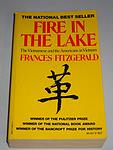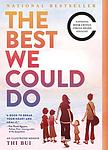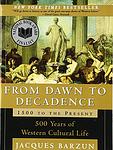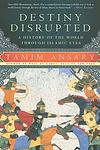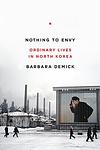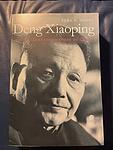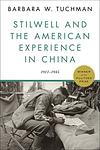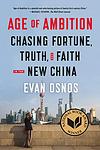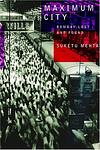The Greatest American "Nonfiction, Asian History" Books Since 1970
Click to learn how this list is calculated.
This list represents a comprehensive and trusted collection of the greatest books. Developed through a specialized algorithm, it brings together 290 'best of' book lists to form a definitive guide to the world's most acclaimed books. For those interested in how these books are chosen, additional details can be found on the rankings page.
Genres
Asian History is a category of books that focuses on the historical events, cultures, and societies of Asia. This category includes books that cover a wide range of topics, including the ancient civilizations of China, Japan, and India, the rise and fall of empires, the impact of colonialism, and the modernization of Asian countries. It also includes books that explore the social, political, and economic changes that have shaped the region over time. Overall, Asian History provides readers with a comprehensive understanding of the rich and diverse history of Asia.
Countries
Date Range
Reading Statistics
Click the button below to see how many of these books you've read!
Download
If you're interested in downloading this list as a CSV file for use in a spreadsheet application, you can easily do so by clicking the button below. Please note that to ensure a manageable file size and faster download, the CSV will include details for only the first 500 books.
Download-
1. The Death of Woman Wang MMP by Jonathan Spence
"The Death of Woman Wang MMP" is a historical narrative that vividly portrays 17th-century rural China, specifically the T'an-ch'eng county in Shantung province. The book focuses on the lives of ordinary people, their struggles, and the harsh realities they face, using the tragic story of a woman named Wang as the central narrative. It also provides a detailed account of the local judicial system and the role of the local historian, all of which are interwoven to create a comprehensive picture of the society and culture of the era.
-
2. The Gate of Heavenly Peace by Jonathan Spence
"The Gate of Heavenly Peace" is a comprehensive historical analysis of China from the 1890s through the 1980s, focusing on the intellectual and political movements that shaped the country. The book explores the complex interplay between tradition and modernity, and the often tumultuous relationship between the Chinese people and their leaders. It delves into the lives and thoughts of key figures in Chinese history, providing a nuanced understanding of the forces that have shaped China's trajectory.
-
3. Fire in the Lake by Frances FitzGerald
This book is an in-depth analysis of the Vietnam War from the perspective of the Vietnamese people and culture. The author explores the historical, cultural, and social factors that contributed to the conflict, providing a comprehensive understanding of the war beyond the American involvement. It delves into the roots of Vietnamese nationalism, the impact of French colonialism, and the ideological differences between North and South Vietnam, giving the reader a nuanced view of this complex period in history.
-
4. May You Be The Mother Of A Hundred Sons by Elisabeth Bumiller
This book offers a poignant exploration of the lives of women in India, delving into the complexities of their roles in a society marked by stark contrasts and contradictions. Through a series of vivid narratives and personal stories, the author paints a multifaceted picture of the challenges and triumphs faced by Indian women, from the constraints imposed by traditional customs to their efforts in seeking empowerment and equality. The work reflects on themes of marriage, motherhood, and the cultural significance of bearing sons, while also examining the evolving landscape of women's rights and the impact of economic and social change in India.
-
5. The Road Through Miyama by Leila Philip
The book is a memoir that recounts the author's experience living in the rural Japanese village of Miyama, where she apprenticed with a traditional potter. Immersing herself in the rhythms of rural life and the demanding discipline of pottery, she navigates cultural barriers and finds a deep connection to the landscape and its people. Through her journey, the author explores themes of tradition, craftsmanship, and the intricate relationship between human endeavor and the natural world, all while painting a vivid portrait of a community holding onto its heritage amidst modernity.
-
6. Behind the Beautiful Forevers: Life, Death, and Hope in a Mumbai Undercity by Katherine Boo
This book is a gripping narrative that provides an in-depth look into the lives of residents in a Mumbai slum, focusing on their struggles and aspirations. The author paints a vivid picture of the harsh realities of poverty, corruption, and inequality, while also highlighting the resilience and hope of the inhabitants. The narrative is a powerful exploration of the complexities of modern India, revealing the stark contrast between the country's booming economy and the grim living conditions of its underprivileged citizens.
-
7. Burmese Looking Glass by Edith Mirante
The book is a gripping memoir that chronicles the author's daring travels and activism in Burma (Myanmar) during the 1980s. It delves into the complex political landscape of the country, highlighting the struggles of ethnic minorities and the brutality of the military regime. The author's journey is both a personal quest and a political mission, as she ventures into rebel-held territories, witnesses human rights abuses, and works to bring international attention to the plight of the Burmese people. Her narrative weaves together adventure, compassion, and a deep commitment to justice, offering a unique perspective on a nation fraught with conflict and the resilience of its people.
-
8. The Best We Could Do: An Illustrated Memoir by Thi Bui
This illustrated memoir captures the story of a Vietnamese family who fled to America after the fall of South Vietnam in the 1970s. The narrative traces their journey and struggles as refugees, while also delving into the family's complex history and relationships. The author uses her own experiences as a new mother to explore themes of parenthood, identity, and the enduring effects of displacement and trauma.
-
9. Iron & Silk by Mark Salzman
This book is a memoir that recounts the experiences of an American teacher and martial artist who spends two years in China during the early 1980s. The narrative delves into the cultural exchanges and misunderstandings between East and West as the author teaches English and studies kung fu with master practitioners. Through a series of vignettes, the memoir paints a portrait of a China still recovering from the Cultural Revolution, exploring themes of connection, tradition, and the nuances of human relationships across a vast cultural divide. The author's journey is one of self-discovery, as he navigates the complexities of life in a foreign land, building friendships and gaining insights into the subtleties of Chinese culture and society.
-
10. From Dawn To Decadence : 1500 To The Present by Jacques Barzun
This book offers a sweeping overview of Western cultural life from the Renaissance to the early 21st century. It delves into the pivotal events, ideas, and personalities that have shaped the modern world, exploring how cultural movements and the evolution of thought have influenced society's development. The narrative weaves through various disciplines, including art, music, politics, and science, to provide a comprehensive understanding of the forces that have led to both the achievements and challenges of Western civilization. Through a rich tapestry of historical analysis, the work invites readers to reflect on the complexity and dynamism of the human experience over the last five centuries.
-
11. The Great Divergence by Kenneth Pomeranz
This book challenges traditional views on the rise of the Western world's economic dominance, arguing that until the late 18th century, parts of Europe, China, Japan, and the Islamic world were similarly advanced. The author contends that geographical and ecological factors, rather than inherent cultural or technological superiority, played a crucial role in Europe's industrialization. Specifically, the availability of coal in Britain and the exploitation of the New World's resources are highlighted as pivotal in creating the "Great Divergence" between the West and the rest of the world. Through this lens, the book reevaluates the roots of global inequality and the factors that have shaped the modern economic landscape.
-
12. The Memory Palace Of Matteo Ricci by Jonathan Spence
This historical work delves into the life of a 16th-century Italian Jesuit missionary who traveled to China with the aim of spreading Christianity. The book explores his innovative method of evangelism, which involved adapting Western memory techniques to create a "memory palace" that would resonate with the Chinese literati. By intertwining mnemonic imagery with elements of Chinese culture and belief, he sought to bridge the gap between East and West and facilitate the exchange of ideas and knowledge. The narrative not only recounts his missionary efforts but also paints a vivid picture of the cultural and intellectual landscapes of both Renaissance Europe and Ming Dynasty China.
-
13. Destiny Disrupted by Tamim Ansary
The book provides a sweeping historical account of the world from the perspective of Islamic civilization. It spans from the time of the Prophet Muhammad to the early 21st century, offering insights into how Muslims have seen their history unfold, which is markedly different from the Western narrative. The author delves into the rise and fall of empires, the evolution of Islamic thought, and the complex interactions between the Muslim world and the West. This narrative aims to bridge cultural divides by presenting a story that is often left out of typical Western-centric historical accounts, thus giving readers a more nuanced understanding of global history and the roots of contemporary geopolitical issues.
-
14. Empire Of Cotton: A Global History by Sven Beckert
"Empire of Cotton" by Sven Beckert is a comprehensive global history of cotton, exploring its impact on the world economy, politics, and society from the 18th century to the present day. Beckert argues that cotton played a crucial role in the development of capitalism, colonialism, and imperialism, and that its production and trade were intimately linked to the exploitation of labor, the growth of slavery, and the rise of industrialization. The book offers a fascinating and thought-provoking perspective on the complex and often violent history of cotton and its enduring legacy in the modern world.
-
15. War Without Mercy by John W. Dower
This book provides a detailed analysis of the racial aspects that influenced the Pacific War during World War II. It explores the racial stereotypes, propaganda, and policies that were used by both the United States and Japan, and how these factors contributed to the extreme violence and hatred that characterized the conflict. The book also examines the impact of these racial attitudes on the post-war relations between the two countries.
-
16. Nothing to Envy by Barbara Demick
"Nothing to Envy" is a non-fiction narrative that provides an in-depth look at life in North Korea through the eyes of six defectors. The book covers a span of 15 years, during which the country faced a devastating famine. It explores the lives of ordinary citizens, their indoctrination, their gradual realization of the truth about their government, and their decision to defect. The book paints a vivid picture of the harsh realities of life under a totalitarian regime and the struggle for survival and escape.
-
17. Deng Xiaoping And The Transformation Of China by Ezra F. Vogel
This book provides a comprehensive examination of the life and political career of Deng Xiaoping, a paramount leader who played a crucial role in steering China towards the path of reform and opening-up, transforming it from an impoverished, isolationist country into a global economic powerhouse. Through detailed research and analysis, the narrative delves into Deng's pragmatic approach to governance, his strategies for economic development, and his handling of domestic and international challenges. Highlighting his pivotal policies, leadership style, and the impact of his vision on China's modernization, the book offers an insightful look into the complexities of political leadership and the socio-economic evolution of one of the world's most populous nations.
-
18. The Great Leveler : Violence And The History Of Inequality From The Stone Age To The Twenty First Century by Walter Scheidel
This book delves into the historical patterns of inequality, arguing that significant reductions in inequality have only ever been brought about by cataclysmic events, which the author terms as the "Four Horsemen": war, revolution, state collapse, and plague. Through a comprehensive examination of societal structures from the Stone Age to the modern era, it presents a compelling case that peaceful reforms have rarely led to lasting decreases in inequality. The work challenges readers to confront the uncomfortable reality that significant improvements in equality have often been forged in the crucible of immense human suffering, thereby questioning the prospects for achieving future equality without such extreme catalysts.
-
19. The Rising Sun by John Toland
"The Rising Sun" provides an in-depth historical account of Japan during World War II from the perspective of the Japanese. The book explores the political and military events leading up to the war, the conduct of the war itself, and the aftermath, including the bombings of Hiroshima and Nagasaki. The narrative is based on interviews, diaries, memoirs, and letters of the people who lived through these events, offering a unique and comprehensive look at Japan's role in the war.
-
20. Stilwell and the American Experience in China by Barbara Wertheim Tuchman
The book is a detailed historical account of the American military experience in China from 1911 to 1945, specifically focusing on the life and career of General Joseph Stilwell. The narrative provides an in-depth look at Stilwell's efforts to train Chinese troops during World War II, his clashes with Chiang Kai-shek, and his role in the complex political dynamics of the time. It also offers a broader exploration of American-Chinese relations during this period, highlighting the cultural misunderstandings and political tensions that marked this chapter in history.
-
21. Embracing Defeat: Japan in the Wake of World War II by John W. Dower
This book provides a detailed exploration of Japan following World War II, focusing on the country's defeat and subsequent occupation by Allied forces. It delves into the profound changes in Japanese society, politics, and culture during this period. The narrative captures the struggles of ordinary Japanese people, their feelings of guilt and shame, as well as their efforts to rebuild their lives and nation. It also examines the role of the United States in shaping post-war Japan, highlighting the complexities and contradictions of this transformative era.
-
22. Hirohito and the Making of Modern Japan by Herbert P. Bix
This book provides a comprehensive and controversial historical account of Emperor Hirohito of Japan, debunking the popular belief that he was a mere figurehead during World War II. Instead, the book argues that Hirohito was actively involved in the decision-making processes that led Japan into the war, and that he managed to escape blame for the nation's actions due to clever political maneuvering during the post-war period. The book also explores Hirohito's role in shaping modern Japan, detailing his influence on its military, political, and cultural institutions.
-
23. Ghost Wars by Steve Coll
"Ghost Wars" is an in-depth exploration of the complex history of Afghanistan from the Soviet invasion in 1979 to just before the terrorist attacks of September 11, 2001. The book provides an intricate account of the CIA's role and America's foreign policy in Afghanistan, the rise of the Taliban, and the emergence of Osama Bin Laden. It also details the numerous missed opportunities to capture or kill Bin Laden, and the failure to prevent the 9/11 attacks.
-
24. Age of Ambition: Chasing Fortune, Truth, and Faith in the New China by Evan Osnos
"Age of Ambition: Chasing Fortune, Truth, and Faith in the New China" is a vivid exploration of contemporary China. The book delves into the lives of everyday citizens, from dissidents to entrepreneurs, and their pursuit of wealth, freedom, and faith amidst the country's rapid modernization. It provides an in-depth look into the country's socio-political landscape, including its struggles with censorship and corruption, as well as the aspirations and challenges faced by its people in the face of change.
-
25. Maximum City: Bombay Lost and Found by Suketu Mehta
This book offers a comprehensive exploration of Mumbai (formerly known as Bombay), one of the world's largest and most complex cities. The author weaves together personal experiences, interviews and observations to paint a vivid picture of the city's diverse inhabitants and their daily lives. The narrative delves into the city’s underworld, its entertainment industry, its religious tensions, and its political landscape, providing an in-depth look at the dichotomies of wealth and poverty, modernity and tradition, and order and chaos that define Mumbai.
Reading Statistics
Click the button below to see how many of these books you've read!
Download
If you're interested in downloading this list as a CSV file for use in a spreadsheet application, you can easily do so by clicking the button below. Please note that to ensure a manageable file size and faster download, the CSV will include details for only the first 500 books.
Download

